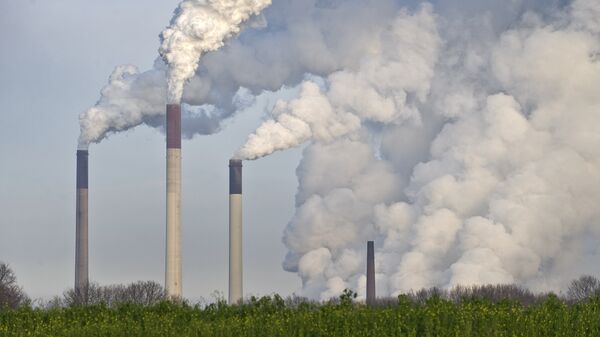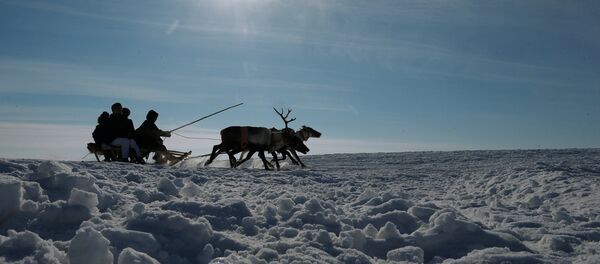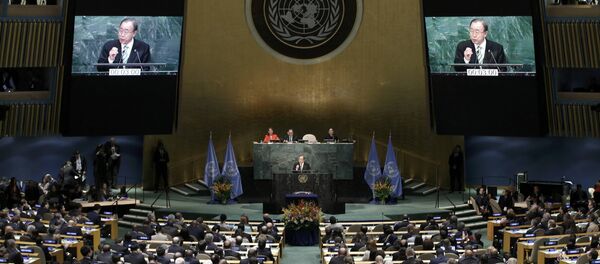A record number of countries signed the Paris climate agreement at the UN headquarters in New York on Saturday; it will come into force when 55 countries, representing 55 percent of global greenhouse gas emissions, ratify the agreement in parliament.
Though the ratification could be stalled by a range of political issues such as the inauguration of the next US president and problems in the world economy, the historical agreement puts the world on a new political track, Dr. Stephen Harrison, a professor specializing in climate change processes at the University of Exeter (UK), told Radio Sputnik.
"The US and China together are responsible for about 40 percent of greenhouse gas emissions, so without their agreement this would be dead in the water," he said.
"Democrats appear to accept most of the science around the issue of climate change; lots of Republicans don't accept that so there are bound to be different perspectives placed on climate change agreements, depending on whether we have a Democrat or Republican future president."
While the historic agreement carries great importance politically and economically, its scientific impact is less clear, the scientist warned.
"The impact it has on the planet system in the short term is a very difficult question," Harrison said.
"One of the scientific problems is the expectation that we want to keep global temperatures to below two degrees Celsius above pre-industrial levels, and there's an intention to keep these temperatures to below 1.5 degrees Celsius above pre-industrial levels, and I think those are going to be very difficult things to meet."
"The way that the climate system is operating at the moment means that this is going to be incredibly difficult to meet, and actually if I were a betting man, I would say we will not keep temperatures to below those sorts of levels," Harrison said.
"I will caution that the climate system is responding very, very rapidly to the emissions that we already have in the atmosphere, so there is an enormous urgency to deal with climate change before it becomes out of our control."




